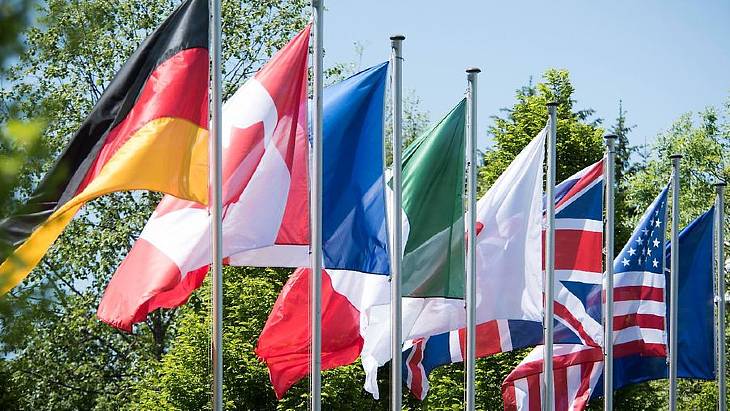In a joint message ahead of the leaders’ summit in Germany from 26 June, the Canadian Nuclear Association, Japan Atomic Industries Forum, Nucleareurope, the USA’s Nuclear Energy Institute, the UK’s Nuclear Industry Association and the World Nuclear Association called on G7 leaders to:
-
Incentivise extending operating life of nuclear reactors as much as feasible and support the restart of other operable reactors. The organisations say that according to the International Energy Agency, extending the operating life of existing reactors is the lowest cost method of securing additional low-carbon electricity generation.
-
Include nuclear energy in national and international green financing policy frameworks, signalling that the nuclear industry is set to play a key role in the global fight against climate change in not only G7 countries, but also developing economies.
-
Set ambitious goals for new national capacity targets, supported by pragmatic policy instruments and efficient regulatory frameworks.
-
Support the development of small and advanced nuclear technologies that will expand the range of applications to which nuclear energy can be applied, to deliver deeper and broader decarbonisation beyond the electricity generation sectors.
The joint statement said: "The G7 commitment to move away from fossil fuels will require investment in low-carbon technologies combined with strong policies that further accelerate the transition towards a clean and secure energy system. Combining nuclear energy with renewables is proven to make rapid and long-lasting decarbonisation of electricity generation an achievable goal.
"Nuclear energy is an accessible, affordable, clean and reliable solution for countries seeking to transition away fossil fuels and achieve a just and equitable energy transition. The construction and operation of each nuclear power plant generates thousands of high-skilled jobs, supports the supply chain and stimulates local economies.
"Beyond power generation, nuclear technologies have an enormous potential to decarbonise other sectors of the economy as well - transport, chemicals, and steel manufacturing, among others - through thermal supply and hydrogen production."
The call to consider extending the life of existing nuclear reactors, and to consider reopening reactors which have recently closed, comes amid soaring energy prices and questions over energy security and supply as a result of Russia’s war with Ukraine.
The Financial Times reported that a senior official in US President Joe Biden's administration told reporters on Wednesday that they expect G7 leaders to debate steps to "stabilise global energy markets" as Washington seeks more co-operation to contain the high commodity prices weighing on the global economy.
Germany is seeking to ensure stable energy supplies and reduce its reliance on Russian gas but it has yet to change its plan to retire its last three operable reactors at the end of 2022.
The UK has six generating nuclear power plants, providing about 16% of the country’s electricity, but most are due to retire by the end of the decade.















